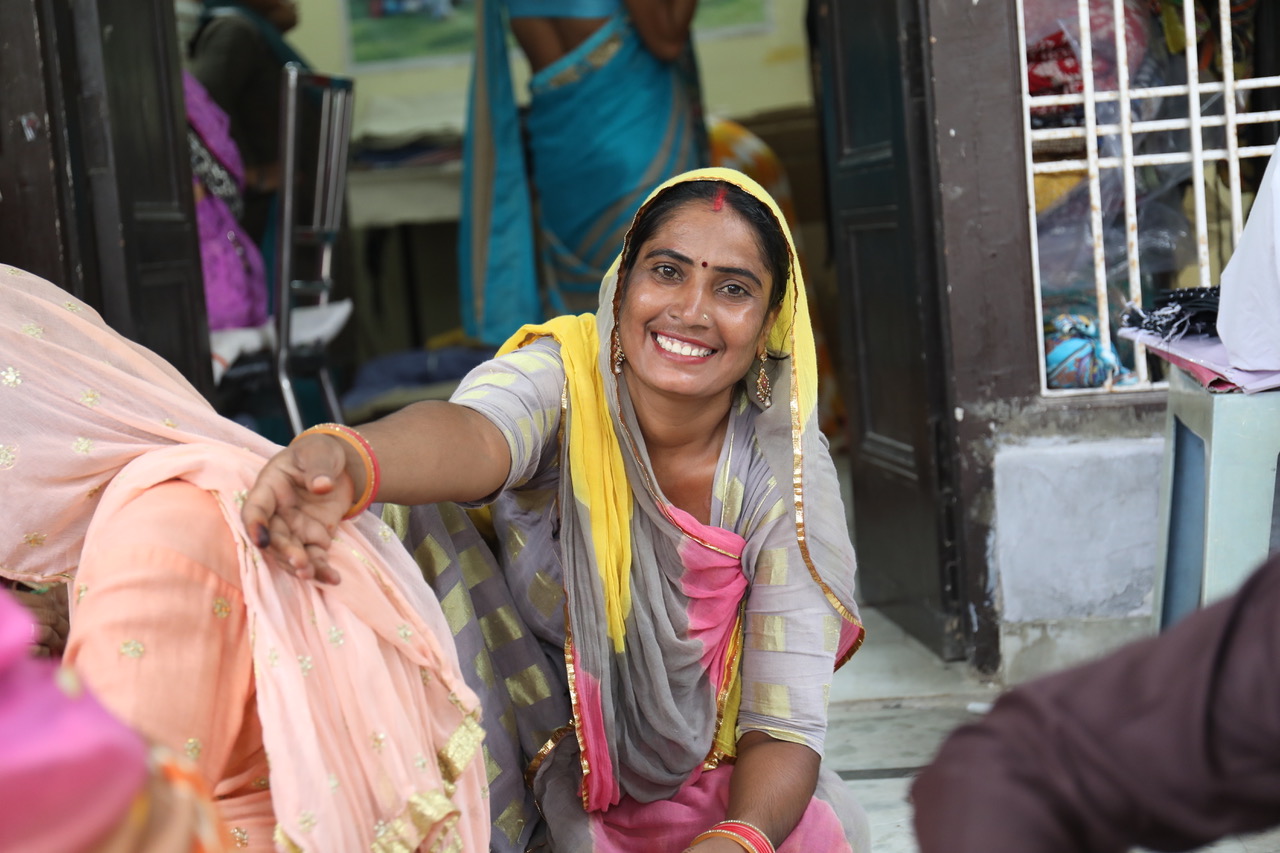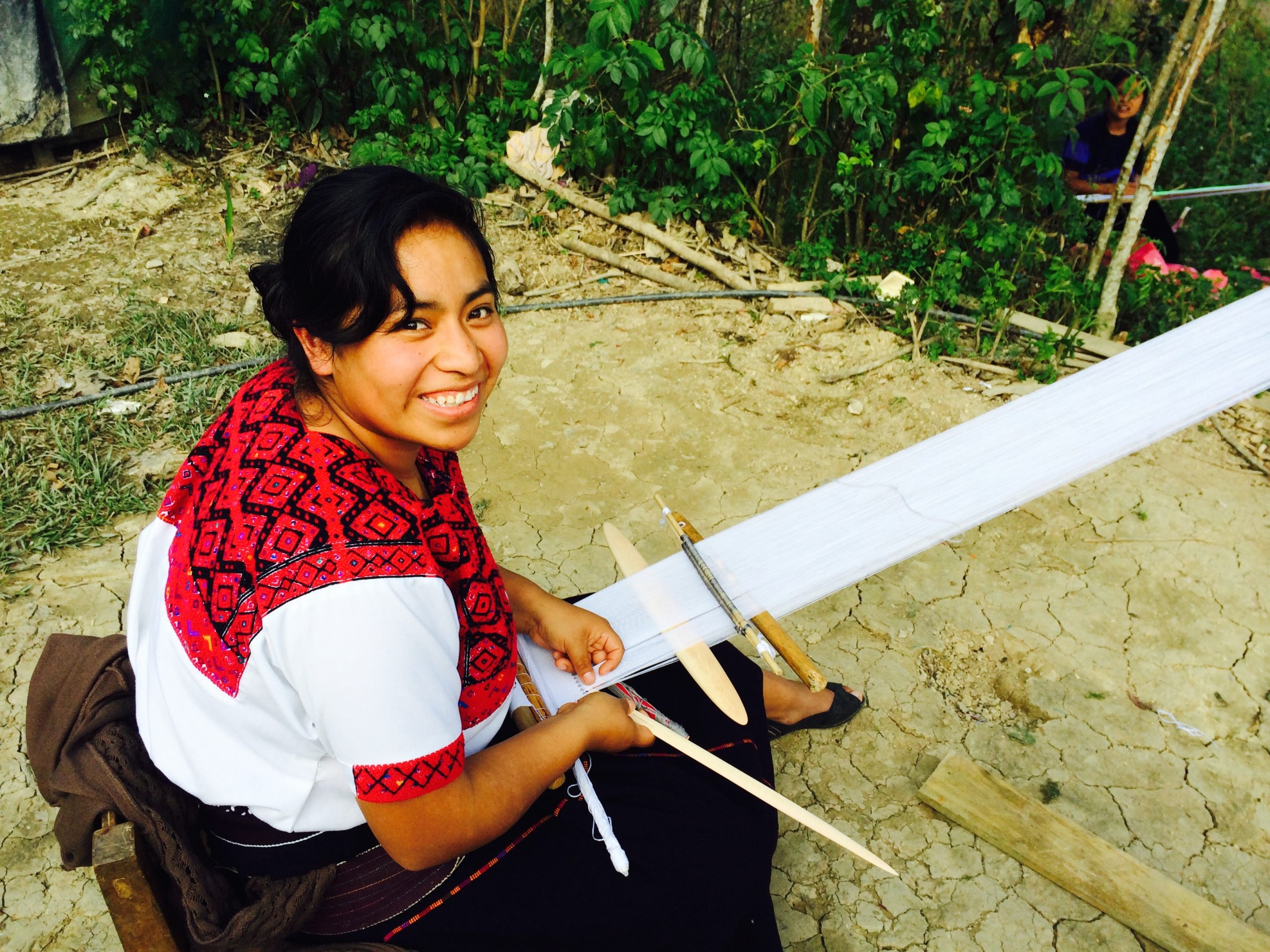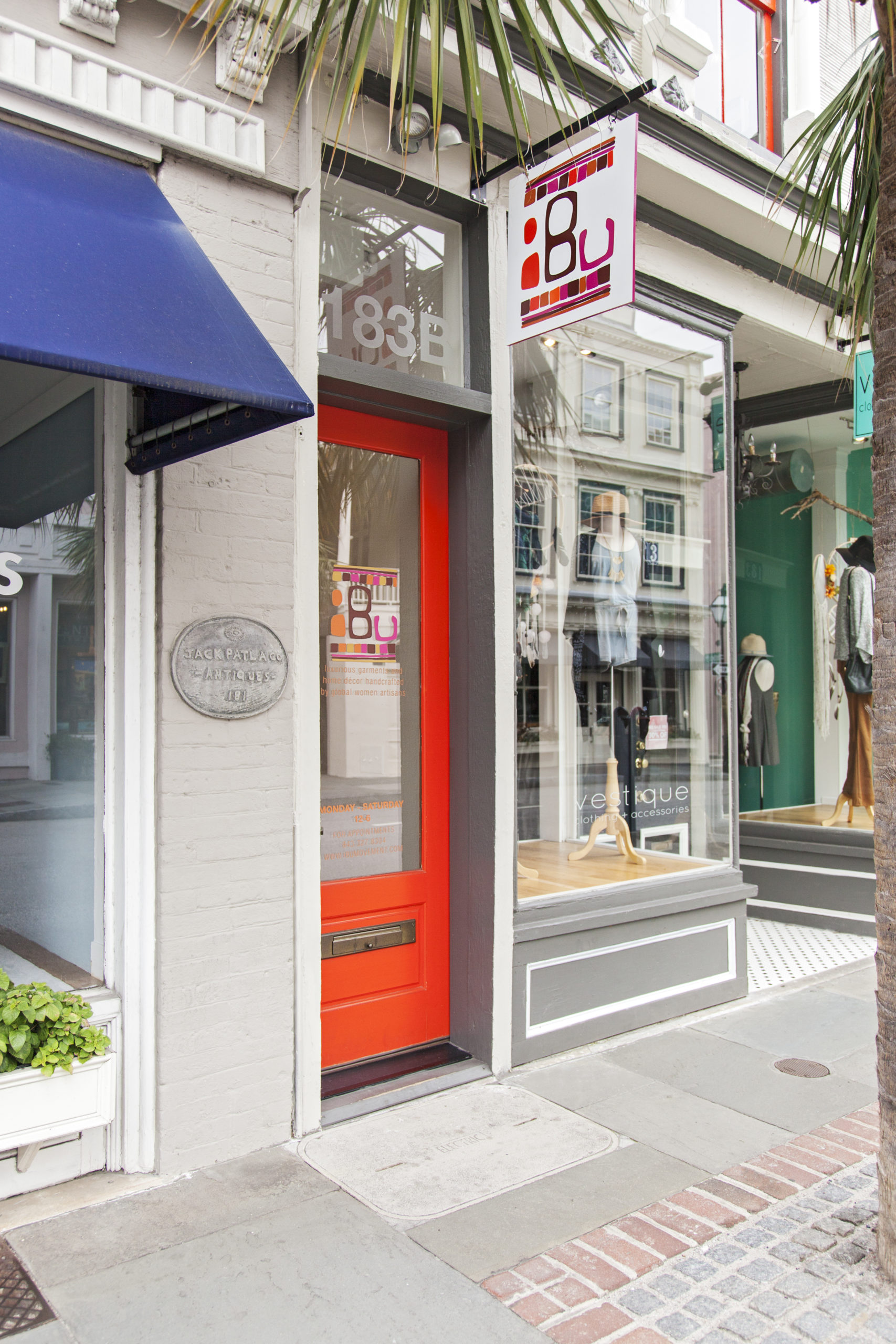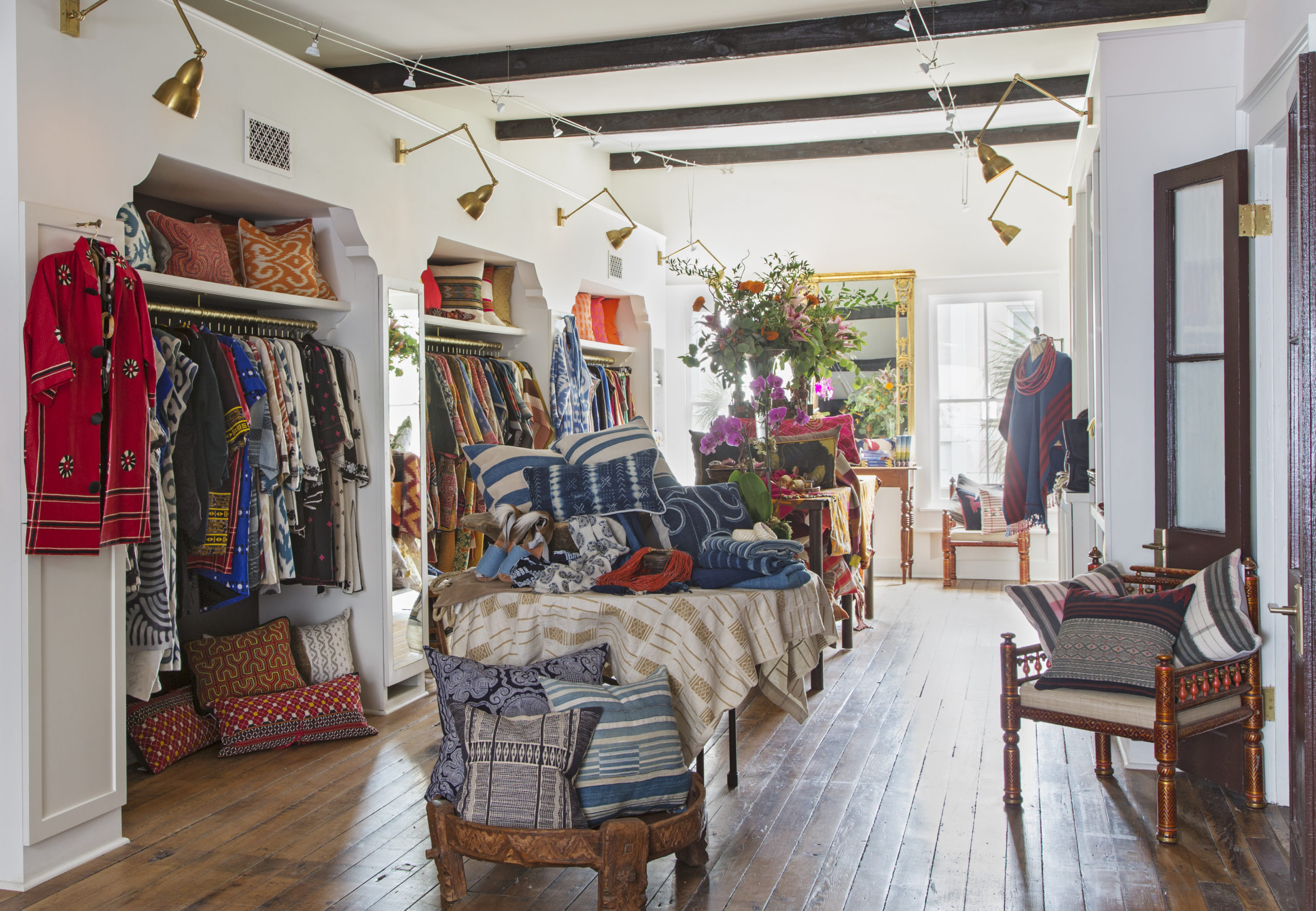In 2014, a mine exploded in western Turkey, killing over 300 men and injuring many others. The women were left widowed and found themselves without a source of household income. Yildiz Yagci, president and CEO of Anatolian Artisans, recognized this need and created an outlet for the women, providing them with a safe space to come together and earn a sustainable income through their traditional lace-making technique called Oya embroidery. There are 21 women in the cooperative and 185 women on the waiting list, hoping to join the group so they can support themselves and their families.
Founded by Hassana Yusuf, the Queen Anima Embroidery Center works with Hausa women in northern Nigeria to bring their remarkable embroidery and designs
to a new market. Starting with five women, the group has grown to 27 artisans, with many more young women currently in training to join their cooperative.
From the nomadic traditions of their Kyrgyz families, Seven Sisters began to innovate with the traditional felted textiles for which they are known, translating this cultural language into a whole new medium for clothing in a Western market. Their region was severely hit by COVID-19, affecting many of their families and leaving them without access to proper medical care. As a result, the sisters lost most of their work orders and were in danger of losing their workspace as well.
There are a list of nations, mainly in the Middle East and Asia where women are treated as second-class citizens. Many are sexually abused and beaten and some have been brutally murdered. They live in fear and poverty. However, there is a movement of women around the world that are rising out of their situations, educating their children and leading their communities by creating artisan crafts with their own hands. These women are IBU (pronounced ee-boo) – an Indonesian word that means they are women of respect.
Susan Hull Walker, the founder of IBU, created this enterprise in 2013. She envisioned a global enterprise where artisan women would be able to sell their goods to other women all over the world. “If you are living in rural Africa and no one in your village can afford to buy what you have made, you have no way to continue making it,” she says. “So my goal was to expand the market for these women to get their products from the small rural villages to the U.S., to Europe and to those places where [other] women could appreciate their work.”
Prior to beginning her fortuitous path of empowering women, Walker went to Divinity School at Harvard, studying world religion. After working as a minister for 18 years, she decided she wanted to experience a more creative life, so she enrolled in the Savannah College of Art and Design in Georgia. There she studied textiles, weaving, spinning, dyeing embroidery and batik — learning not only the techniques but learning the stories behind them and about artisan women who carried those languages of cloth.
“I became interested in learning more,” Walker says. “Women put meaning, value and story in what they were creating because, before the Industrial Revolution, it took most of their time — that and child-rearing. There was a lot of time spent on making cloth.
As a result, when you spend that much time, you imbue meaning.”
Walker explains that when she was a minister, she realized that she had been interpreting sacred text that was written by men, no matter what religion it was from. She always wondered what women would say, and while women may not have been reading and writing, they were spinning, weaving and dyeing — that was where they recorded their lives.

“I became very fascinated with textiles as a [type of] woman’s text and just delved into a more academic study of that, which led me to travel and source old textiles,” she says. “Having studied it myself, I tried weaving, but what these women were doing was so much more complex, and their cloth was exquisite. It would take me a lifetime to achieve what they were doing. I found that I would rather look for a market for them [to sell their goods] rather than stay in a studio by myself for the rest of my life.”
Women’s issues and women’s empowerment are two of Walker’s greatest passions. She says that she wanted to put money in the hands of women who need it and to preserve these rich languages of cloth. In 2018, she started a non-profit — the IBU Foundation — to help women “come up to a level playing field.” She says most of these women need the “tools of a trade” – a workspace, a way to pay for that workspace, equipment such as sewing machines as well as training on how to run a business. The IBU Foundation is a 501(c)(3) charitable organization, and its goal is to give women in countries around the world a chance to become self-sufficient and independent, elevating them out of poverty and into successful artisan enterprises.
In 2015, Walker opened IBU Movement, a 2,600-square-foot boutique and studio located in Charleston, South Carolina, offering original designs in clothing and accessories in collaboration with the artisan women who are their partners. “It starts with their skill and technique, and we try to work with them on new ways to create products and not take away their original mojo. It’s got to have their soul in it. We also sell directly from artisans. They have already designed it — it’s beautiful and we will sell it. A lot of groups have the skills, but they don’t know this market — they don’t know what you or I would want to purchase — it’s a very fine line.”
Walker reiterates that she is not looking to take anything away from their cultural traditions, but wants to work together to make a product that will help the artisans transcend poverty and circumstance. “It is very reciprocal,” she says. “They need our market; we need the beauty they create because very few people in this country know how to weave and spin and dye. We don’t make our own clothes here; to me it’s a wonderful exchange.”

For someone who is so passionate about helping others succeed, there was something inherent in Susan Hull Walker that inspired her to create this company and foundation.
“It was very much a calling,” she explains. “When I was growing up, my father was an academic, and he had a large library on the top floor of our house with 10,000 volumes of books… My mother was a homemaker and a beautiful seamstress. She had a little sewing room in our basement with no windows and she made all of our clothes — to my horror as a teenager — but [they were] beautifully tailored and exquisite. She was never paid and never really recognized for that, and I think subliminally, I wanted to bring my mother out of the basement and [bring] my father to… recognize her value and [the] worth in what she did. I would have loved for her to manifest her skills in a way [where] she could have been paid to have her own power in her relationship and in life. So, I think that is a need in me — to elevate women.”
Ironically, it seems that Walker’s personal experience is what motivates her to help and inspire others. “I love paying women for what they already do. They don’t have to go off and learn what a man does or what he traditionally has done… A big part of it is acknowledging and giving respect to women for what they have always done, and paying them, which then changes everything. I imagine the men in their families and their villages look at them very differently, so it is elevating them in a lot of different ways.”

Currently, IBU is working with over 40 countries throughout the world. The company continues to monitor its sustainability goals with the fabrics they use, as well as following the goals of no poverty, gender equality, reduced inequalities and creating sustainable cities and communities. IBU has world-renowned ambassadors who help to promote their vision as well as their clothing. Two iconic ambassadors include actress Ali MacGraw and fashion icon Iris Apfel, who both support the mission of IBU. MacGraw has launched an IBU collection of tunics, dresses and accessories for a clothing line bearing her name. Apfel is a huge proponent of preserving the quality of old-world techniques and the designs of the textiles.
As Walker looks to the future, she would like to travel more, do trunk shows highlighting the IBU Collection and spread the word regarding female empowerment through the IBU Foundation. While keeping close tabs on what is happening in the world, she is proud of raising over $200,000, which funded 12 projects and helped to elevate 6,000 artisan women and their families in 11 countries worldwide — all accomplished during last year’s pandemic.

“I want women to be able to support themselves and learn how to do business, long after I am gone,” Walker says. “Then, they can pass down the skills to their daughters. The truth is, that in the rest of the world, they [women] are our greatest resource and are totally untapped. There are leaps and bounds we could take just by freeing some of these women so that they can be the voice of their own community and articulate another point of view about what is important in their lives and contribute to making a difference.”
For more information, visit www.ibumovement.com.
Keep up with all of Green Living’s original content online and on social media
.





